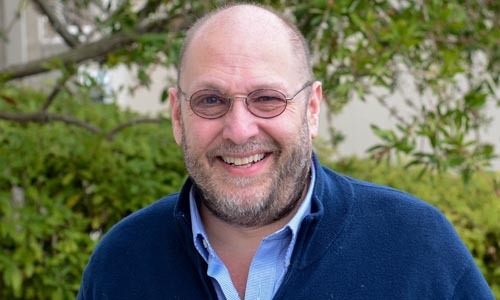
The Bio Report podcast, hosted by award-winning journalist Daniel Levine, focuses on the intersection of biotechnology with business, science, and policy.
The Bio Report podcast, hosted by award-winning journalist Daniel Levine, focuses on the intersection of biotechnology with business, science, and policy.
Episodes

Wednesday Mar 19, 2025
An Insider’s View of the Patent Fights that Shaped the Biotech Industry
Wednesday Mar 19, 2025
Wednesday Mar 19, 2025
Jorge Goldstein trained for a career in molecular biology and biochemistry before becoming a patent attorney, a background that positioned him to help shape patent law for the biotech industry throughout his 40-year career. In his new book Patenting Life: Tales from the Front Lines of Intellectual Property and the New Biology, Goldstein offers a history of the biotech industry through the lens of the critical patent battles that shaped the landscape. We spoke to Goldstein, founder of the law firm Sterne, Kessler, Goldstein & Fox, about the industry’s critical patent battles, his new book, and how he is working today to use patents as instruments for social and economic justice.

Wednesday Mar 12, 2025
Restoring Balance to the Immune System in Allergic Diseases
Wednesday Mar 12, 2025
Wednesday Mar 12, 2025
Eosinophilic esophagitis is a progressive allergic disease characterized by difficulty swallowing and gastric reflux. It results from an elevated number of inflammatory immune cells in the walls of the esophagus. If left untreated, it can cause long-term complications, including scarring and difficulty swallowing. Revolo Biotherapeutics is developing a synthetic peptide therapy that can potentially restore immune system homeostasis in EOE and other allergic diseases. We spoke to Woody Bryan, president and CEO of Revolo, about eosinophilic esophagitis, how the company’s experimental therapy restores homeostasis to the immune system, and how people exposed to tuberculosis pointed the way toward the experimental therapy.

Wednesday Mar 05, 2025
Turning Natural Killers into Off-the-Shelf Therapies for Autoimmune Disease
Wednesday Mar 05, 2025
Wednesday Mar 05, 2025
NK cells, part of the innate immune system, serve as the body’s first line of defense. These cells can recognize and kill abnormal or infected cells. As therapies, they have the advantage over CAR-T and other cell therapies because they can be used off-the-shelf without undergoing gene editing or other genetic modifications. They also don’t trigger cytokine storms, a common reaction to CAR-T therapies that can cause a systemic inflammatory response that can range from flu-like symptoms to life-threatening complications. The greater safety and lower costs of these NK cell therapies open the door to broader uses beyond cancer to include autoimmune diseases. We spoke to Fred Aslan, president and CEO of Artiva Biotherapeutics, about the company’s off-the-shelf NK cell therapies, the case for pairing them with monoclonal antibodies, and how they can broaden the uses for cell therapies.

Wednesday Feb 26, 2025
Combining an Antibody and siRNA to Treat Hepatitis B
Wednesday Feb 26, 2025
Wednesday Feb 26, 2025
More than a decade after the approval of a curative therapy for hepatitis C, hepatitis B has proven more challenging to tackle. Vir Biotechnology, in collaboration with Alnylam Pharmaceuticals, is developing a promising combination approach that marries Vir’s monoclonal antibody tobivibart with Alnylam’s siRNA elebsiran. We spoke to Mark Eisner, chief medical officer of Vir, about hepatitis B, the company’s combination therapy in development with Alnylam, and its platform technologies for developing treatments for infectious disease and oncology.

Wednesday Feb 19, 2025
Looking at the Promise of GLP-1 Agonists Beyond Obesity
Wednesday Feb 19, 2025
Wednesday Feb 19, 2025
While GLP-1 agonists have been all the rage in treating obesity, Coya Therapeutics sees potential for these therapies to address inflammatory diseases. In fact, Coya is developing its low-dose interleukin 2 in combination with several different agents. The belief is that its approach will address inflammation by targeting dysfunctional regulatory T cells. The company is pursuing multiple neurodegenerative conditions, as well as autoimmune and metabolic diseases. We spoke to Arun Swaminathan, CEO of Coya Therapeutics, about its pipeline-in-a-product strategy to treat neurodegenerative and other inflammatory diseases, its pursuit of a GLP-1 combination therapy for these conditions, and the challenges of being a newly minted public company in the current financial environment.

Wednesday Feb 12, 2025
An Off-the-Shelf Cancer Vaccine Faces a Final Clinical Hurdle in NSCLC
Wednesday Feb 12, 2025
Wednesday Feb 12, 2025
Though cancer vaccines have been an area of great promise, in practice they have faced several challenges because of the heterogeneity of tumors, the ability of the tumor microenvironment to suppress the immune system, and the challenges of producing a strong and sustained T-cell response. OSE Immunotherapeutics’ off-the-shelf cancer vaccine Tedopi has shown promising results in a phase 3 study in patients with non-small cell lung cancer and the company is now conducting a confirmatory phase 3 study. We spoke to Nicolas Poirier, CEO of OSE Immunotherapeutics, about the company’s off-the-shelf cancer vaccine, non-small cell lung cancer, and how it is leveraging its immune system expertise through partnerships with leading pharmaceutical companies.

Wednesday Feb 05, 2025
A Nose for Attacking Brain Cancer
Wednesday Feb 05, 2025
Wednesday Feb 05, 2025
One of the challenges in treating brain cancer and other diseases of the central nervous system is delivering therapeutics beyond the blood-brain barrier. NeOnc Technologies using a natural compound derived from essential oils in plants that not only can kill cancer cells, but can cross the blood-brain barrier. What’s more, it can transport other therapies as well. We spoke to Thomas Chen, founder and CEO of NeOnc, about brain cancer, how the blood-brain barrier complicates the delivery of therapies to treat the condition, and how its experimental candidate that is delivered intranasally works.

Wednesday Jan 29, 2025
An Unnatural Approach to Undruggable Targets
Wednesday Jan 29, 2025
Wednesday Jan 29, 2025
Some 70 percent of potential therapeutic targets are believed to be beyond the reach of conventional small molecule therapies or biologics. Macrocyclic peptides offer a way to get at elusive targets while providing desirable characteristics of both small molecule drugs and biologics. They offer oral bioavailability, can permeate cells, and engage complex targets with specificity. Unnatural Products is harnessing AI to create synthetic macrocyclic peptides to pursue previously undruggable targets. We spoke to Cameron Pye, CEO and co-founder of Unnatural Products, about how these peptides can target proteins that traditional therapies cannot reach, the engineering process for the company’s synthetic macrocyclic peptides, and their potential to lead to new innovative therapies for a range of conditions from cancer to obesity.

Daniel Levine
Daniel Levine is an award-winning business journalist who has reported on the life sciences, economic development, and business policy issues throughout his career. He is founder and principal of Levine Media Group, host of The Bio Report and RARECast podcasts, a senior fellow at the Center for Medicine in the Public Interest, and author of Global Genes’ annual NEXT report on emerging trends in the world of rare disease. From 2011 to 2014, he served as the lead editor and writer of Burrill & Company’s acclaimed annual book on the biotech industry. His work has appeared in numerous national publications including The New York Times, The Industry Standard, and TheStreet.com.
